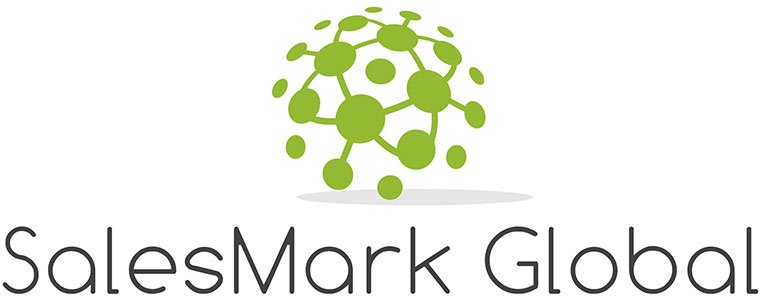Unlocking Marketing Success with Business Intelligence
Table of contents
1. Effective Analysis
2. Digital Advertising
3. Content Strategy
4. Visitor-to-Buyer Ratio
5. Keyword Usage
Final Thoughts
Business intelligence tools help marketers do better by using data to understand customers and campaigns. They can segment customers, make engagement more personal, check how well things are going, and make decisions faster. This helps businesses make more money and grow quickly.
In today’s competitive market, BI platforms help figure out what customers want, how to spend money wisely, and take advantage of new opportunities. This guide talks about all the different ways BI helps in marketing and gives tips on using it to stay ahead.
Business intelligence helps businesses understand data from past and current sources. It gives marketers the information they need to make better ads. BI can tell if marketing efforts are working or not and if the data is useful. It helps make better leads for marketing in five key areas.
1. Effective Analysis
Analyzing and identifying good data is important, but using it well is even tougher. In lead generation, it’s vital to measure and analyze every step accurately. Otherwise, how do we know if things are working? Business intelligence gives reports that help spot opportunities and make results better. Sales teams can also use this information to attract more potential customers. Picture turning reactive lead generation actions into proactive ones with BI. This could answer two big questions: ‘Who are my customers?’ and ‘What will happen if I take certain actions?’
2. Digital Advertising
Business intelligence is a powerful tool for refining online advertising strategies. It helps companies understand their audience better by providing detailed demographic data. This information can lead to more targeted campaigns, especially when combined with geographical data for location-based targeting. While platforms like Google offer some data, BI can provide deeper insights tailored to specific needs.
By gathering data from various sources, marketers can refine their tactics. They can use past customer behaviour to create personalised campaigns, like offering discounts to frequent buyers. Over time, these loyal customers can become advocates, spreading positive word-of-mouth and attracting new leads. This cycle of loyalty and recommendations can ultimately boost profits and enhance the company’s reputation.
3. Content Strategy
Recently, we have seen B2B companies participating more in content marketing, also known as inbound marketing. A recent report on content marketing trends found that a whopping 89% of companies are using content in their plans. And 71% of them are using tools like business intelligence to check how well their efforts are doing.
The key takeaway here is that companies need tools to dig into their content. With data piling up all the time, extracting meaningful data without any assistance has become very difficult. That’s where business intelligence comes in handy. It gives experts a good look at who’s already interested in their strategy, helping them make content that speaks to their targeted audience.
4. Visitor-to-Buyer Ratio
In addition to its broader applications in business analysis, business intelligence (BI) offers valuable insights into the performance of landing pages, which are integral to any corporate website. Understanding the factors that drive customers toward making a purchase decision is paramount for marketers seeking to optimize their strategies. While conventional landing page analytics tools may fall short in providing comprehensive insights, BI services offer a deeper dive into crucial metrics such as click rates across different page sections.
By leveraging BI, businesses can pinpoint patterns in customer behavior, including search habits and exit points on the website. Armed with this knowledge, organizations can fine-tune their landing pages to minimize bounce rates and enhance lead generation efforts. This level of precision enables marketers to craft more effective strategies for attracting prospects and converting them into loyal clients.
5. Keyword Usage
In content marketing, prioritizing keywords is paramount for businesses seeking to enhance their online presence. Leveraging business intelligence tools facilitates the identification of optimal keywords aligned with a brand’s identity. This strategic approach significantly enhances lead-generation endeavors, ensuring more targeted and effective outreach.
For instance, while certain keywords may yield high click-through rates on a company’s website, they might not resonate as well on social media platforms. In such cases, business intelligence comes to the fore by enabling organizations to discern the most fitting keywords for each channel. This segmentation of the lead generation process holds the potential to bolster conversion rates, maximizing the impact of marketing efforts across diverse digital landscapes.
These examples underscore the multifaceted utility of business intelligence across industries. Refining the lead generation process is a common objective for all organizations, and BI streamlines this endeavor through automation and insightful analysis. Nonetheless, it’s crucial for businesses to recognize the value of tailored BI solutions. Customized platforms are meticulously crafted to align with specific organizational requirements, ensuring optimal responsiveness and efficacy.
Final Thoughts
With competition escalating and data expanding rapidly, business intelligence has become essential for marketing success. By integrating data from various sources and utilizing analytics to refine strategies, personalize communication, and expedite decision-making, businesses can enhance productivity and achieve significant growth. Teams that integrate business intelligence into their marketing strategies will thrive in the evolving landscape, setting the stage for more effective campaigns and sustained success.
Visit Our SalesMarkBlog Section to Uncover the Sales Strategies That Ignite Your Sales Journey!



